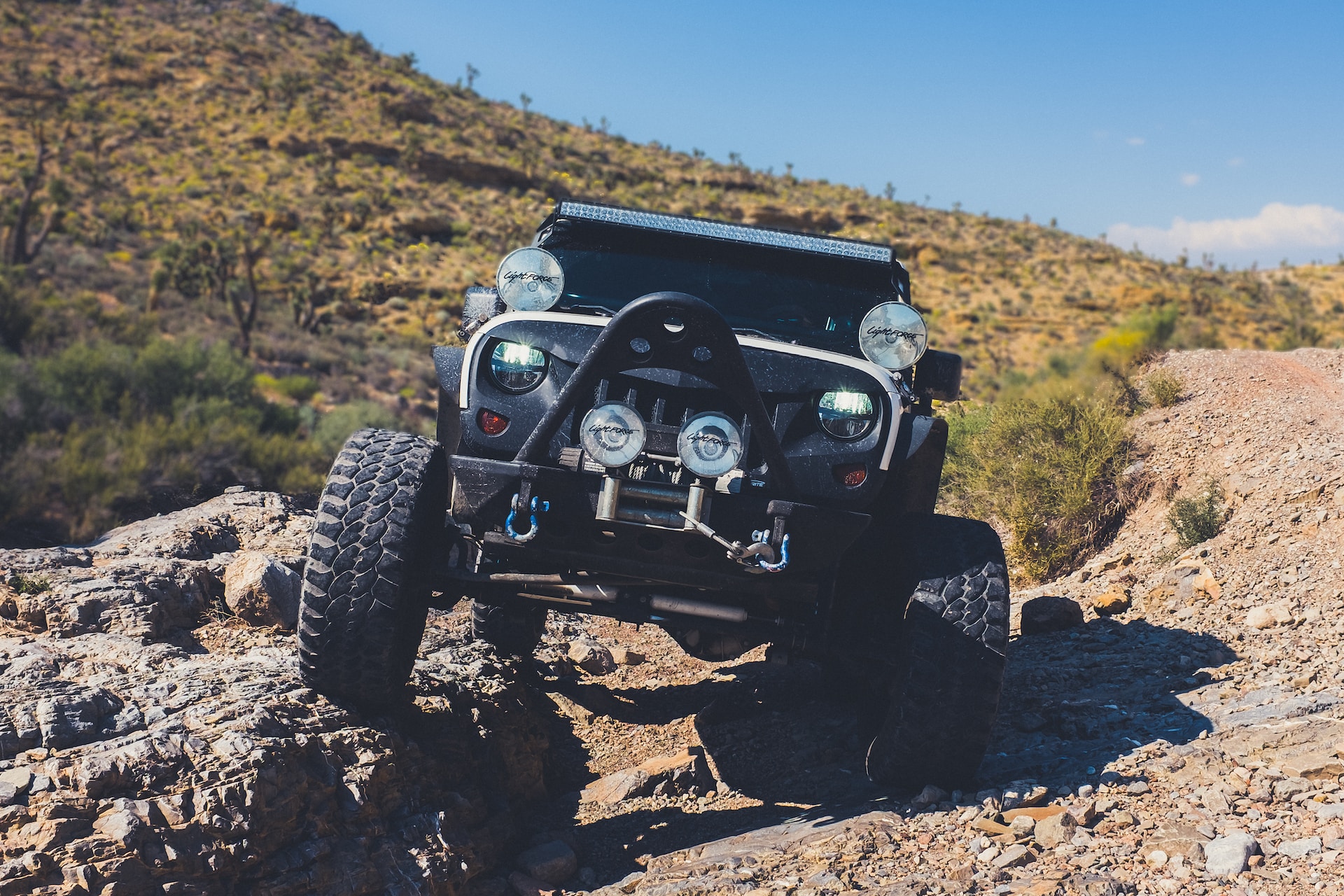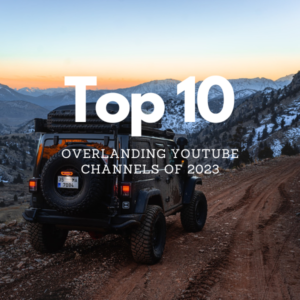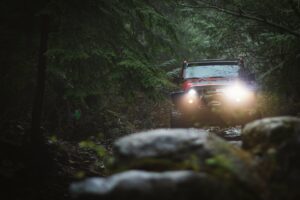Off-roading is an exhilarating way to explore the great outdoors, but it’s not as simple as just hitting the trails. Whether you’re new to the world of off-roading or looking to deepen your expertise, this comprehensive guide is designed to navigate you through everything you need to know. From essential gear and top destinations to safety tips and budgeting, we’ve got you covered.
Table of Contents
History
The concept of off-roading has been around for as long as vehicles have existed. However, it wasn’t until the mid-20th century that off-roading became a recognized and organized activity. The rise of specialized vehicles and the advent of off-road parks and trails have contributed to making off-roading a popular pastime for adventure seekers.
Early Beginnings
The roots can be traced back to military applications. During World War II, vehicles like the Jeep were designed for rugged terrains, effectively laying the groundwork for civilian off-roading.
The Jeep Revolution
Post-war, the Jeep transitioned from a military vehicle to a civilian one, and off-roading as a recreational activity began to take shape. The 1950s and 60s saw the Jeep become synonymous with off-road adventures.
Rise of Off-Roading Culture
The 1970s and 80s marked the rise of off-roading culture, with the introduction of specialized off-road vehicles and the establishment of off-road parks and trails. Magazines, clubs, and events dedicated to off-roading began to emerge, further popularizing the activity.
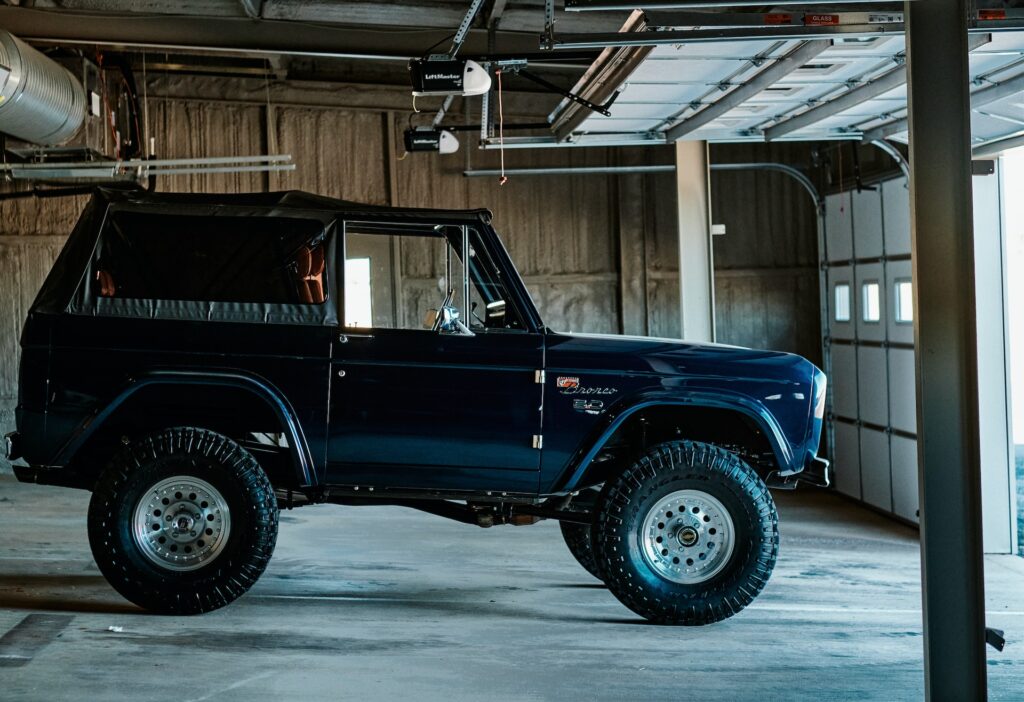
Modern Off-Roading
Today, off-roading has evolved into a multifaceted activity, encompassing various forms like rock crawling, mudding, and trail riding. Advances in vehicle technology have also led to more capable and specialized off-roading machines.
Types of Off-Roading
Off-roading is not a one-size-fits-all adventure. It comes in various forms, each offering its own set of challenges and thrills. Whether you’re a beginner or a seasoned off-roader, understanding the different types of off-roading can help you choose the right adventure for you.
Rock Crawling
This is perhaps the most technical, requiring specialized vehicles with high ground clearance and excellent articulation. Rock crawling involves navigating through rocky terrains at low speeds.
Mudding
Also known as “mud bogging,” this involves driving through muddy terrains. The goal is often to get as far as possible without getting stuck.
Trail Riding
Trail riding is one of the most accessible forms of off-roading. It involves driving on unpaved roads and trails, and it’s suitable for various types vehicles.
Dune Bashing
Popular in desert regions, dune bashing involves driving at varying speeds over sand dunes. This type requires a vehicle with high horsepower and specialized tires.
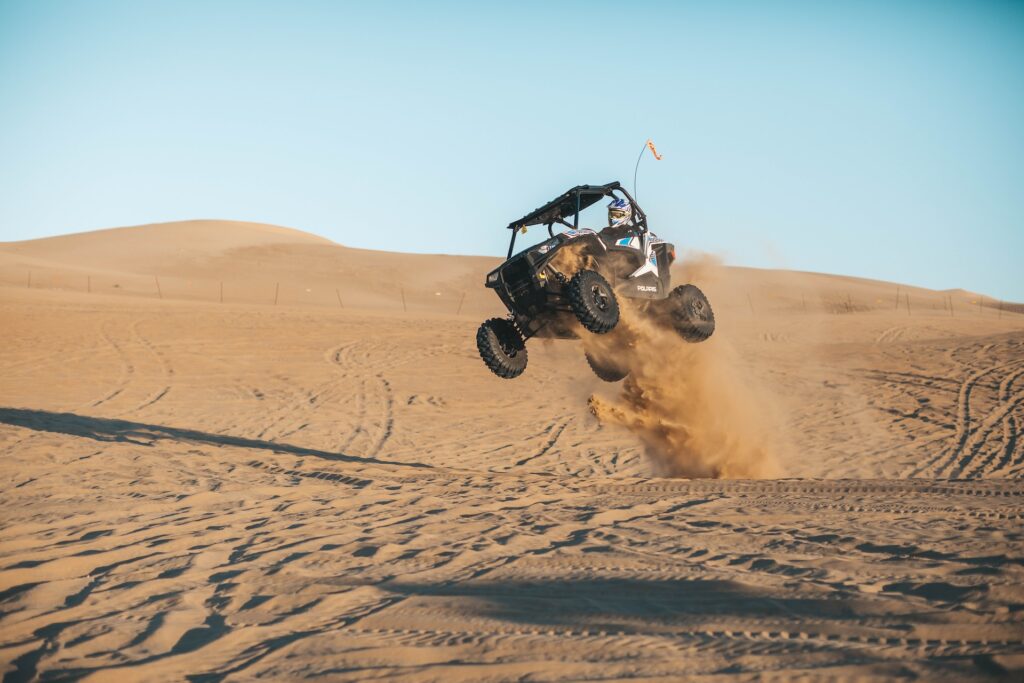
Overlanding
Though not strictly off-roading, overlanding involves traveling to remote destinations, often requiring off-road capabilities. The journey is the primary goal, rather than the technical driving.
Essential Gear for Off-Roading
When it comes to off-roading, being prepared is half the battle. The right gear can make the difference between an exhilarating adventure and a frustrating ordeal. Below are some essential items you should consider packing for your next trip.
Recovery Gear
A winch, tow straps, and recovery boards are crucial for getting out of sticky situations. These tools can help you or a fellow off-roader get unstuck from mud, sand, or rocks.
Navigation Tools
GPS devices and topographic maps are essential for navigating unfamiliar terrains. A reliable compass can also come in handy.
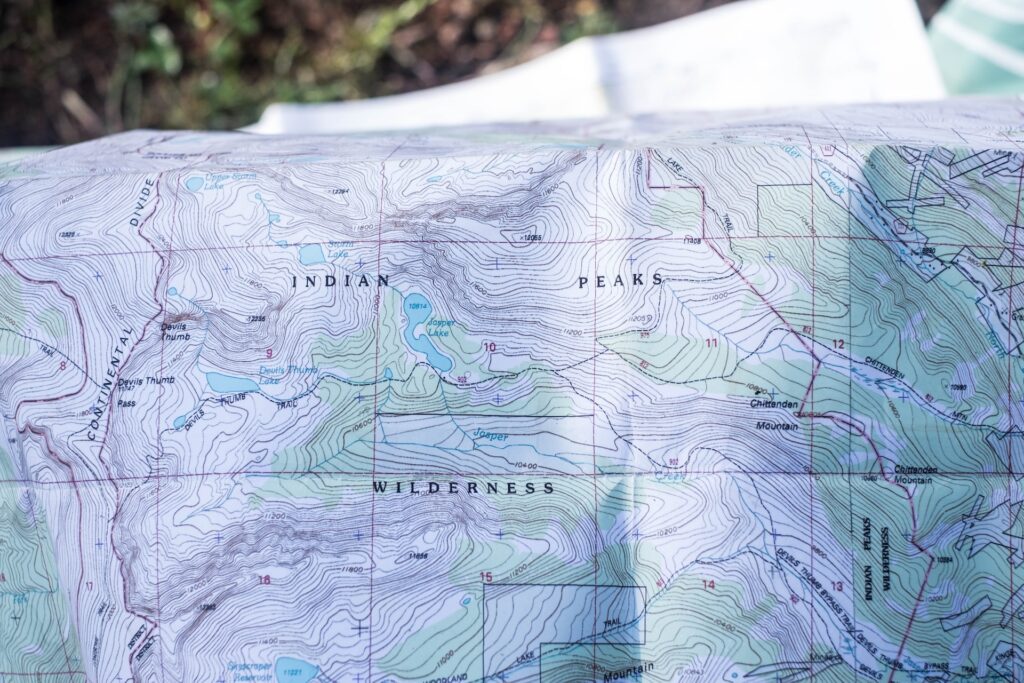
First Aid Kit
Accidents can happen, and a well-stocked first aid kit is a must-have. Make sure it includes bandages, antiseptics, and other emergency supplies.
Off-Road Tires
Specialized tires provide better traction and durability on rough terrains, enhancing your vehicle’s performance.
Communication Devices
Two-way radios or satellite phones are essential for staying in touch, especially in areas with poor cell reception.
Survival Essentials
Items like water, non-perishable food, and a fire starter can be lifesavers in emergency situations.
Best Off-Roading Vehicles
Choosing the right vehicle is crucial for a successful off-roading experience. While many vehicles claim to be off-road capable, only a few truly excel in the rugged conditions that off-roading presents. Here are some of the best vehicles for off-roading, each with its own set of unique features.
Jeep Wrangler
The Jeep Wrangler is often considered the gold standard for off-roading. With its high ground clearance, solid axles, and customizable features, it’s built to tackle almost any terrain.
Toyota Land Cruiser
Known for its durability and reliability, the Toyota Land Cruiser offers a blend of luxury and off-road capability, making it a popular choice for overlanders.
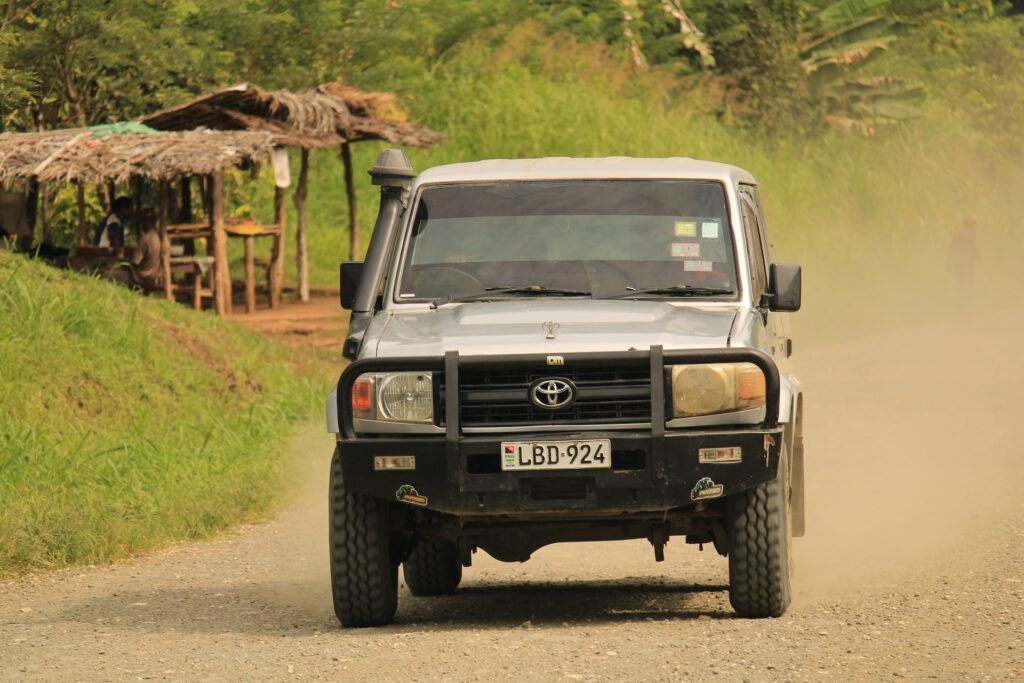
Ford Bronco
The newly revived Ford Bronco is designed to compete directly with the Jeep Wrangler. It offers a range of off-road packages and a removable roof and doors for a more immersive experience.
Land Rover Defender
The Land Rover Defender is renowned for its off-road prowess and luxurious interiors. Its advanced all-wheel-drive system and adaptive dynamics make it a versatile choice.
Chevrolet Colorado ZR2
This midsize pickup offers an excellent balance of power and agility. With features like Multimatic shocks and front and rear electronic locking differentials, it’s built for off-road performance.
Safety Tips and Guidelines
Off-roading is an exhilarating experience, but it also comes with its own set of risks. Prioritizing safety can ensure that your adventure is both fun and incident-free. Here are some essential safety tips and guidelines to follow when off-roading.
Know Your Vehicle
Understanding your vehicle’s capabilities and limitations is crucial. Familiarize yourself with its ground clearance, 4×4 settings, and other off-road features.
Plan Your Route
Always plan your route in advance and let someone know where you’re going. Carry a map and GPS to help you navigate.
Travel in Groups
Off-roading alone can be risky. It’s always safer to travel in groups, ensuring that help is available if you get stuck or face an emergency.
Image Suggestion: A convoy of off-roading vehicles on a trail, emphasizing the safety in numbers.
Carry Emergency Supplies
In addition to your first aid kit, carry essential emergency supplies like water, food, and a fire starter.
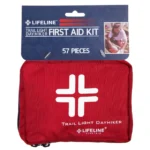
Follow Trail Etiquette
Respect other trail users and follow established off-roading guidelines. Yield to uphill traffic and stay on designated trails.
Image Suggestion: A sign or infographic illustrating common trail etiquette rules.
Inspect Your Vehicle
Before and after your adventure, inspect your vehicle for any damage or necessary adjustments. Check the tire pressure, fluid levels, and brakes.
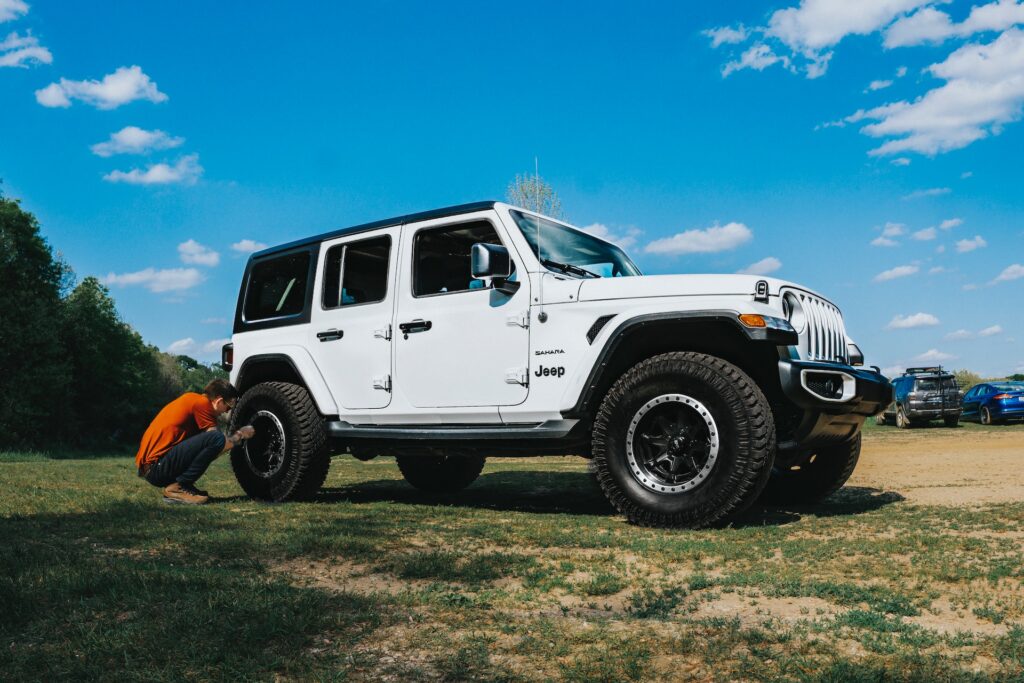
Costs and Budgeting
Off-roading can be as budget-friendly or as extravagant as you make it. However, it’s essential to understand the costs involved to ensure you’re adequately prepared for your adventure. Here’s a breakdown of some of the expenses you might encounter.
Vehicle Costs
The cost of an off-road-capable vehicle can range from a few thousand dollars for a used model to upwards of $50,000 for a new, fully-equipped one.
Gear and Equipment
Essential gear like winches, tow straps, and tires can add up. Budget at least a few hundred dollars for basic recovery and navigation gear.
Maintenance
Regular maintenance is crucial for off-roading vehicles. Oil changes, tire rotations, and brake inspections can add to your overall costs.
Fuel Costs
Off-roading can be fuel-intensive, especially when navigating challenging terrains. Always factor in the cost of fuel when planning your trip.
Park and Trail Fees
Many parks and trails require an entrance fee or permit. These can range from a few dollars to more substantial amounts for premium locations.
Emergency Funds
It’s always wise to have an emergency fund for unexpected situations like vehicle breakdowns or medical emergencies.
Top Off-Roading Destinations in North America
North America offers a plethora of off-roading destinations, each with its own unique terrain and challenges. Whether you’re a seasoned off-roader or a beginner, here are some top destinations across the continent that you won’t want to miss.
Moab, Utah
Known as the off-roading capital of the world, Moab’s red rock formations provide a unique and challenging landscape for all skill levels.

Rubicon Trail, California
This 22-mile trail in the Sierra Nevada is considered one of the most challenging trails in the United States.
Whipsaw Trail, British Columbia, Canada
This Canadian trail offers a mix of forested paths and rocky terrains, making it a must-visit for off-roading enthusiasts.
Ouray, Colorado
Known as the “Switzerland of America,” Ouray offers some of the most scenic off-roading trails in the state, including the famous Alpine Loop.
Alaska’s Dalton Highway
For a truly remote experience, the Dalton Highway offers 414 miles of rugged landscapes and is one of the most isolated roads in the United States.
Off-Roading Communities and Resources
Being part of an off-roading community can enhance your experience by providing valuable insights, tips, and camaraderie. Additionally, there are numerous resources available to help you plan and execute your adventures. Here are some key communities and resources to consider.
Online Forums
Websites like Pirate4x4 and JeepForum offer a platform for off-roaders to share experiences, ask questions, and offer advice.

Social Media Groups
Platforms like Facebook and Instagram have various groups where members share photos, trail recommendations, and gear reviews.
Local Clubs
Joining a local club can provide hands-on experience and mentorship. Clubs often organize group rides, trail clean-ups, and other events.
Apps and Websites
Apps like AllTrails and websites like Trailsoffroad.com offer detailed trail maps, reviews, and other essential information.
Books and Magazines
Publications like “Four Wheeler” magazine and various guidebooks offer in-depth articles, gear reviews, and tips.
Conclusion
Off-roading is more than just a hobby; it’s a lifestyle that offers endless adventure and challenges. Whether you’re a seasoned pro or a beginner eager to hit the trails, understanding the various aspects of off-roading can significantly enhance your experience. From the history and types of off-roading to essential gear, safety tips, and top destinations, this comprehensive guide aims to equip you with the knowledge you need to make the most of your off-roading adventures.
As you venture into the great outdoors, remember that being part of an off-roading community can offer invaluable resources and camaraderie. So gear up, plan your next adventure, and hit the trails with confidence. Happy off-roading!

